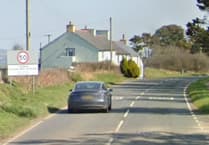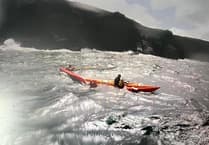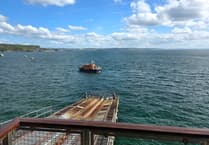Two local lifeboat stations were again amongst the busiest in Wales last year, the RNLI has revealed in its rescue statistics for 2015.
Angle was the second busiest all-weather lifeboat in Wales, with 38 launches. The number of people rescued by the station’s inshore and all-weather lifeboat rose from 44 in 2014 to 53 in 2015.
The volunteer RNLI crew also saved more lives than anywhere else in Wales, with eight people who would have otherwise lost their lives, being brought to safety.
Tenby, meanwhile, was the fourth busiest of the 30 lifeboat stations in Wales, with 55 launches and 52 people rescued.
Elsewhere in Pembrokeshire, Fishguard also saw a slight increase in call-outs with 26 launches in 2014 to 32 in 2015, while launches were also on the up at Little and Broad Haven, with 23 launches and 23 people rescued in 2015, compared with 17 launches and 14 people rescued in 2014.
Throughout Wales as a whole, the charity’s lifeboats launched a total of 1,058 times and rescued 1,029 people, while RNLI lifeguards in Wales also had another busy summer in 2015, responding to 815 incidents and assisting 901 people on 32 beaches.
Nicola Davies, community incident reduction manager for the RNLI, said: “Our volunteer lifeboat crews and lifeguards have again worked exceptionally hard serving our local communities. We continue to urge those working or enjoying our coastline and inland areas to respect the water. Inland, floods caused heartache for many at the end of 2015 and we ask those faced with floods to be aware of the fast flowing flood waters and to keep a safe distance. We understand that things can go wrong from time, so some preventative maintenance and annual checks prior to the boating season should allow for worry free sea time.
“We would like to thank all of our volunteers for their tireless hard work and dedication over the last 12 months, without all of our volunteers, fundraisers, education teams our lifesaving service would not operate.”
The volunteer lifeboat crews carry pagers 24/7, never knowing what may lie ahead when the alarm is raised. The most frequent type of call-out was to bring people ashore, with 261 incidents of this nature - the highest since 2011. This was followed closely by call-outs to people in power pleasure craft (206 incidents) and then sail pleasure craft (196).
The most common cause of service was machinery failure, with 206 call outs in 2015.
Lifeguards provided a safety service on beaches in Ceredigion, Pembrokeshire, Carmarthenshire, Swansea, Neath Port Talbot and the Vale of Glamorgan last year, giving safety advice and assistance to beach goers.
Phil Davies, RNLI lifeguard manager, West Wales, said: “Much of the RNLI’s focus goes into preventing incidents before they occur, both lifeguards issuing safety advice on the beach and the charity’s safety and education work in communities. Our lifeguards dealt with fewer incidents last year compared to 2014 and while the inconsistent weather played a part, this shows the prevention work is having an impact.
“Some of the more serious incidents last year were where people got into difficulty trying to rescue others in trouble in the sea. We would always advise people to swim at lifeguarded beaches and report anyone in trouble to lifeguards, who are fully trained in how to deal with emergency situations. If lifeguards are not available, call 999 and ask for the coastguard.”





Comments
This article has no comments yet. Be the first to leave a comment.